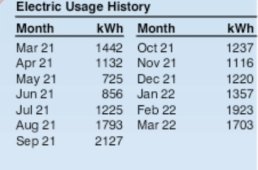Got a $53,280.00 solar install quote for a 14.4 kw system from Goso technologies in Boston .
 goso.tech
goso.tech
ESTIMATED YEARLY PRODUCTION 16,935 kWh
I have included my monthly uses as attachment
This includes
36 Hanhwa QCELL G10+ 400W ALL BLK panels
36 Enphase IQ7PLUS-72-2-US micro inverters
Federal Tax Credit $19,852.00
MA Solar Tax Credit $1,000.00
MA SMART Program $3,295.51
Net System Cost $29,132
I'm thinking even with tax credits this price seems to be gouging for what i'm getting.
The panels will be mounted on my roof and garage roof so I don't think I will have a shade issue. Are micro inverters overkill for this situation?
Seems I can buy a pallet and a half of SOLAREVER 445W MONO SOLAR PANELS for about $7200 plus shipping on ebay.

Then two 7.6kW 240V Grid Tie Inverter By Solar Edge for $669 each

Even if I have to spend $2000 on mounting and wiring i'm only at about $11,000.
Does this seem like a good setup or are my components sub par compared to the quote I got?
What is the going average rate for a 14.4kw system?
Thanks for all your input
David
Home - GOSO Technologies
ESTIMATED YEARLY PRODUCTION 16,935 kWh
I have included my monthly uses as attachment
This includes
36 Hanhwa QCELL G10+ 400W ALL BLK panels
36 Enphase IQ7PLUS-72-2-US micro inverters
Federal Tax Credit $19,852.00
MA Solar Tax Credit $1,000.00
MA SMART Program $3,295.51
Net System Cost $29,132
I'm thinking even with tax credits this price seems to be gouging for what i'm getting.
The panels will be mounted on my roof and garage roof so I don't think I will have a shade issue. Are micro inverters overkill for this situation?
Seems I can buy a pallet and a half of SOLAREVER 445W MONO SOLAR PANELS for about $7200 plus shipping on ebay.

PALLET OF 20 AMERICAN MADE SOLAREVER 445W MONO SOLAR PANELS W/ 25 YEAR WARRANTY | eBay
Pallet Quantity: 20 Panels. Warranty: 25 LINEAR MANUFACTURE WARRANTY.
www.ebay.com
Then two 7.6kW 240V Grid Tie Inverter By Solar Edge for $669 each

7.6kW 240V Grid Tie Inverter By Solar Edge - Battery Backup Additions Possible | eBay
Find many great new & used options and get the best deals for 7.6kW 240V Grid Tie Inverter By Solar Edge - Battery Backup Additions Possible at the best online prices at eBay! Free shipping for many products!
www.ebay.com
Even if I have to spend $2000 on mounting and wiring i'm only at about $11,000.
Does this seem like a good setup or are my components sub par compared to the quote I got?
What is the going average rate for a 14.4kw system?
Thanks for all your input
David
Attachments
Last edited:




